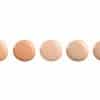In 2022, people starting new beauty routines are not just looking for the cheapest or most effective products. They're also actively reading labels and even opting for ingredients found in their own cupboards and refrigerators.
Are you looking for natural beauty tips for your face? In this article, you’ll learn about natural beauty tips and ingredients to complement your skincare routine. Read on to discover how you can achieve a naturally beautiful complexion.
Are Natural Ingredients Safe and Effective for Your Skin Type?
Do you know what ingredients are in your skincare products? There are a lot of skincare products on the current market claiming to be “natural.” But the truth is that “natural” is an unregulated term, meaning there is no clear definition of the term when used to reference cosmetic products. Just because a product is labeled as “natural” does not mean that it is good for your skin.
When making a DIY mask, try to pick out ingredients that are safe and help your skin type and skin issues. To prevent discomfort or irritation, be extra careful when applying these ingredients to sensitive areas on your face, such as your eyes.
While natural products yield many facial skincare benefits, they might not work for everyone. If you decide to use these natural ingredients, testing them out on another part of your body first may help you rule out possible adverse reactions and make sure they don’t aggravate your skin condition symptoms.
If you have severe skin conditions, it’s a good idea to consult with a dermatologist before using any of the ingredients listed below. Talking to a skin expert about these natural ingredients will help you determine if they are suitable and effective for your skin. They can also help you prevent or reduce potential risks and side effects. And they can probably tell you the safe amounts you can take and how often you can use these natural ingredients on your skin. They will also be able to tell you which ingredients you should avoid mixing.
Moreover, a dermatologist will be able to tell you if you can apply these ingredients to broken, damaged, or cut skin. Also, please note that some ingredients listed in this article may need more scientific evidence of their effectiveness on the skin. The current evidence may be anecdotal only.
Those who are pregnant or breastfeeding should ask doctors about using any new products. Be careful: Some of these natural ingredients have side effects, based on the user. That’s why it is a good idea to do a patch test first before applying them to your face.
Natural Skincare Ingredients at Home
Check out these 10 natural skincare ingredients that you probably have lying around at home:
1. Virgin Coconut Oil
Virgin coconut oil makes an excellent hydrating skin care product, making it suitable for dry skin types. It reduces inflammation and itchiness, moisturizes skin, and serves as a protective barrier against free radicals. Additionally, it serves as a cleanser, as it removes makeup, dirt, excess oils, and other impurities. Its antibacterial properties, such as lauric acid, helps fight acne. Coconut oil also boosts collagen production and lightens dark spots.
Coconut oil may not be suitable for people who have excessively oily skin, as it is can block or clog your pores. Those who are allergic to coconut may want to avoid applying coconut oil to their face.
2. Aloe Vera
Aloe vera is known for its soothing, moisturizing, and wound-healing benefits. Using aloe vera may help you achieve a natural glow all while reducing dark spots, stretch marks, scars, and inflammation. Additionally, it helps alleviate itchiness, dryness, and minor burn pain.
This ingredient can also protect your skin from sun damage. However, it should not completely replace your sunscreen or SPF products, as it will not provide enough sun protection on its own. Instead, you may want to use it with your sunscreen for ultimate protection.
Aloe vera is not suitable for everyone, as some may be allergic to it. Some may experience irritation, itching, burning, rashes, or other side effects. Although these reactions may sound scary, don’t rule aloe vera out yet. To make sure you don't have an adverse reaction, test out a small amount on your arm or wrist before applying it to more sensitive areas of your face or body. If no reaction occurs within the first day, you are probably not allergic to it.
3. Plain Yogurt
Surprisingly enough, plain yogurt — not vanilla, but plain yogurt — may offer several skin benefits supported by science. It may help retain moisture and brighten your skin. Yogurt may also help improve skin tone, increase skin elasticity, reduce acne, and diminish fine lines and wrinkles. With the help of its probiotics, yogurt may also help those dealing with inflammatory skin issues like eczema, psoriasis, and rosacea.
In addition to improving several skin conditions and imperfections, yogurt may offer protection against UV rays. It is believed that yogurt also serves as a shield against free radicals, therefore preventing sun damage. Moreover, research suggests yogurt can repair sun damage already caused by UV rays. But wearing an SPF of 30 or higher is still a much better option to protect your skin from the sun.
However, yogurt as a topical cream comes with a potential caveat: It may lead to clogged pores, but this has yet to be examined by clinical studies. Those with a lactose allergy may want to use goat milk or plant-based yogurt instead.
4. Avocado Oil
Packed with fatty acids, antioxidants, and vitamins a, d, and e, avocado oil provides several skin benefits. It can moisturize and nourish your skin, stimulate collagen production, and speed up the wound-healing process.
Additionally, it may prevent and help cure acne and reduce inflammation caused by certain skin conditions. Also, this ingredient may help maintain elasticity, treat sunburns, and shield your skin from UV radiation. Its soothing and moisturizing abilities make it suitable for people with dry skin.
5. Cucumbers
Cucumbers can help ease sunburn, reduce inflammation, and hydrate your skin. They have antioxidants that can help brighten your skin. Their antioxidants like beta carotene can also help ward off free radicals.
Additionally, cucumbers make a good natural eye treatment, as they contain vitamins A, C, and K, which may provide anti-aging benefits. These fruits help reduce dark circles and eye puffiness, providing you with a more refreshed, well-rested look. Cucumbers contain silica — a natural ingredient that promotes collagen production. Collagen helps to maintain plump, tight, and youthful-looking skin.
6. Green Tea
Green tea is an antioxidant-rich ingredient that is safe for nearly all skin types. It provides anti-inflammatory and antibacterial effects. This tea can help reduce excessive sebum production or natural oils. As a result, oily and acne-prone skin types may benefit from green tea. It may also help those experiencing redness, irritation, or rosacea.
Additionally, green tea can help diminish signs of aging, as it helps prevent collagen and elastin breakdown. As a result, it can help reduce hyperpigmentation, sun damage, age spots, fine lines, wrinkles, and more. It can also complement sunscreen to help protect your skin from the sun, as it reduces UV damage.
While green tea yields many benefits, you may want to stay away from green tea extracts, which are more concentrated forms of green tea. Green tea extracts and green tea supplements have been linked to liver toxicity. Here are different ways of applying green tea to your face.
7. Oatmeal
Ground oats may provide an exfoliating effect, as they can remove dirt, oil, and dead skin cells. Doctors usually recommend using the fine powder form of oatmeal also known as colloidal oatmeal.
Oatmeal has anti-inflammatory and antioxidant benefits. Colloidal oatmeal can protect against free radicals and reduce inflammation caused by skin diseases. It may help alleviate symptoms caused by psoriasis and eczema. It helps those experiencing redness, itching, dryness, and irritation.
8. Turmeric
Tumeric is a spice containing curcumin: a powerful antioxidant that has anti-inflammatory effects. This ingredient may reduce swelling and help alleviate symptoms of certain skin disorders. More research and evidence are needed to support that turmeric can help with skin conditions. However, some studies suggest that turmeric may treat and alleviate acne, psoriasis, and atopic dermatitis (eczema) symptoms.
Also, some people use turmeric as a skin-lightening ingredient to lighten dark under-eye circles and brighten skin tone. They also use it to treat hyperpigmentation issues. Turmeric is not for everyone, as some people may be allergic to it. Moreover, turmeric can stain skin, leaving an orangey or yellowish hue on your face (and hands!). Be extra careful when handling this ingredient.
9. Manuka Honey
Manuka honey is a type of honey made by bees who pollinate the manuka bushes — small trees found in New Zealand and Australia. Manuka honey contains antimicrobial, wound healing, anti-inflammatory, and antioxidant properties that can all help your skin. This honey can help treat acne, prevent infections, support wound healing, reduce inflammation, and hydrate skin.
10. Peppermint Oil
Peppermint oil has anti-inflammatory, antibacterial, and antiviral benefits. It can cleanse your skin. Its cooling and soothing effects can help ease itchy, inflamed, irritated, and sunburned skin. It helps regulate oil production, making it an effective ingredient for oily, acne-prone, and combination skin types.
Additionally, you can mix a few drops of peppermint oil with your lip gloss to plump your lips. To avoid irritation or a stinging sensation, start by applying one diluted drop to your lips. For skincare purposes, you should use peppermint oil as a spot treatment or prepare it with a clay mask instead of applying it to your entire face by itself. You should first dilute peppermint essential oil by mixing it with a carrier oil, such as coconut, jojoba, olive, or almond oil. You can make peppermint oil at home by using olive oil and peppermint leaves.
3 Simple DIY Natural Skincare Masks You Can Do at Home
Not all DIY natural skincare masks are created equal. Some include ingredients that may irritate or damage your skin. That’s why it’s important to know the right ingredients to mix to make a safe and effective homemade mask for your face.
Read on to discover three DIY face masks dermatologists swear by.
Manuka Honey, Coffee, and Turmeric Face Mask
When reviewing natural skincare hacks on their Youtube channel Doctorly, dermatologists Dr. L.J. Maxfield and Dr. Muneeb Shah shared their thoughts about ingredients like turmeric, manuka honey, and coffee for the face.
Although they don’t approve of using coffee as a scrub, they agree on using it as a sit-in-place topical on the face. Caffeine helps reduce inflammation, making it a suitable ingredient for those with inflammatory skin conditions. Also, caffeine can decrease puffiness, making it a great ingredient for reducing puffiness under the eyes.
Turmeric helps those with hyperpigmentation, and honey helps with inflammation and wound healing. Thus, both Dr. Maxfield and Dr. Shah approve of using caffeine, turmeric, and manuka honey in a face mask.
To may this face mask, use one teaspoon of coffee grounds, one teaspoon of turmeric, and one teaspoon of honey. Mix them until it turns into a paste. To prevent the coffee from serving as a physical scrub against your face, you may decide to not include it in the recipe. You may want to just use the manuka honey and turmeric to make the face mask. You can also substitute green tea for coffee in this recipe.
Green Tea and Honey Face Mask
Another quick and easy face mask with natural ingredients supported by Dr. Maxfield and Dr. Shah includes mixing green tea, water, honey, and a carrier oil like jojoba oil. These ingredients have proven skin benefits that can help those with certain skin conditions.
Avocado, Yogurt, and Cucumber Face Mask
In a TikTok video, board-certified dermatologist Dr. Azadeh Shirazi, also known as Dr. Azi, shared three natural ingredients that you can mix to achieve glowing skin. What’s more, is that you may already have all three of these ingredients in your kitchen: avocado, plain yogurt, and cucumber.
According to Dr. Azi, avocados nourish and hydrate your skin, yogurt gently exfoliates, and cucumbers brighten your skin. Try mixing and applying these ingredients to your face to find out if they can help you achieve a more refreshed, brighter complexion.
Final Thoughts: Use Ingredients Found in Nature
As you can see, several natural ingredients can help enhance your appearance. Now that you know several natural beauty tips to achieve beautiful, glowing skin, are you ready to try them out? Which ingredients or face masks will you try out at home? Remember to choose ingredients that will suit your skin type and that will focus on targeting your unique skin conditions.



